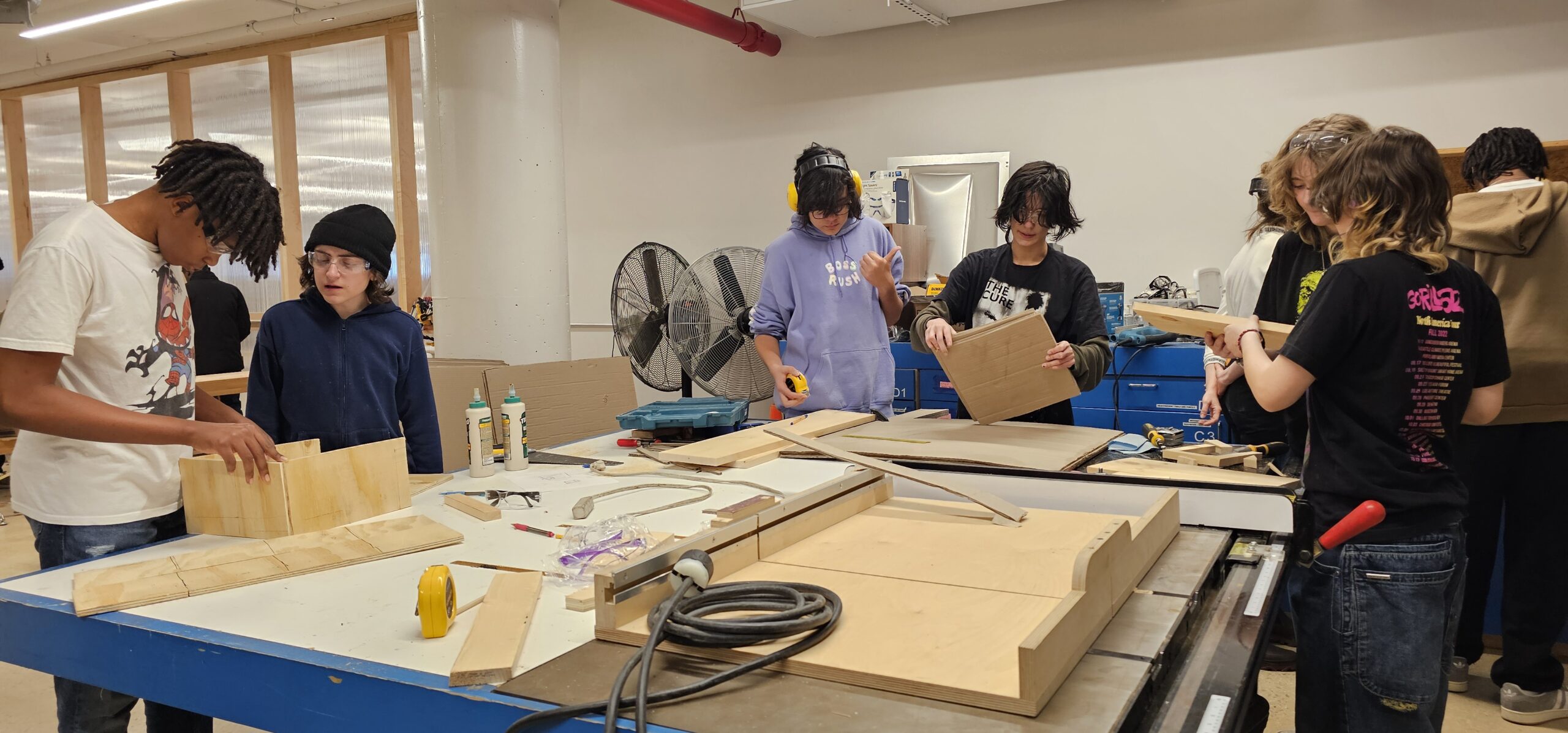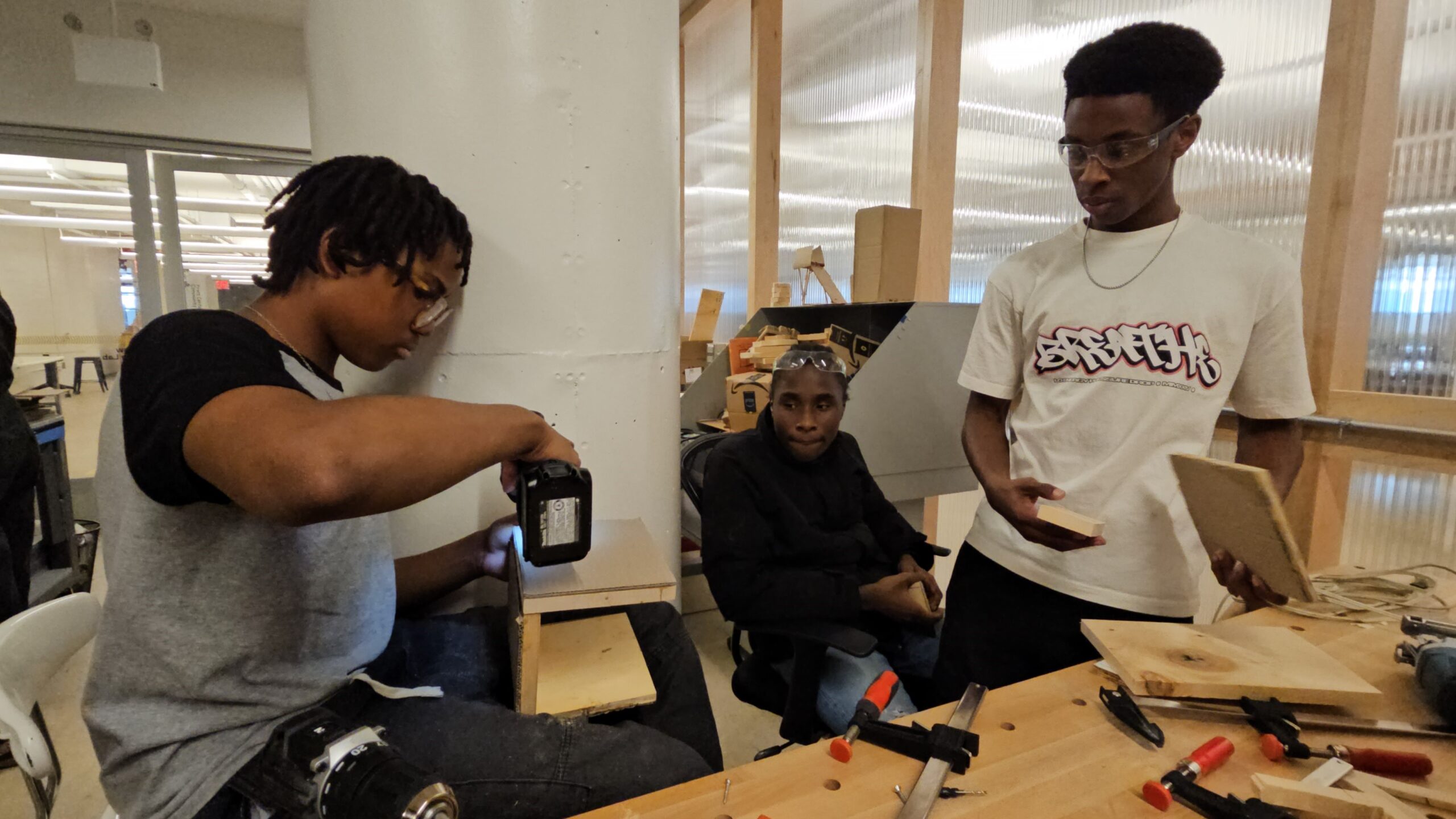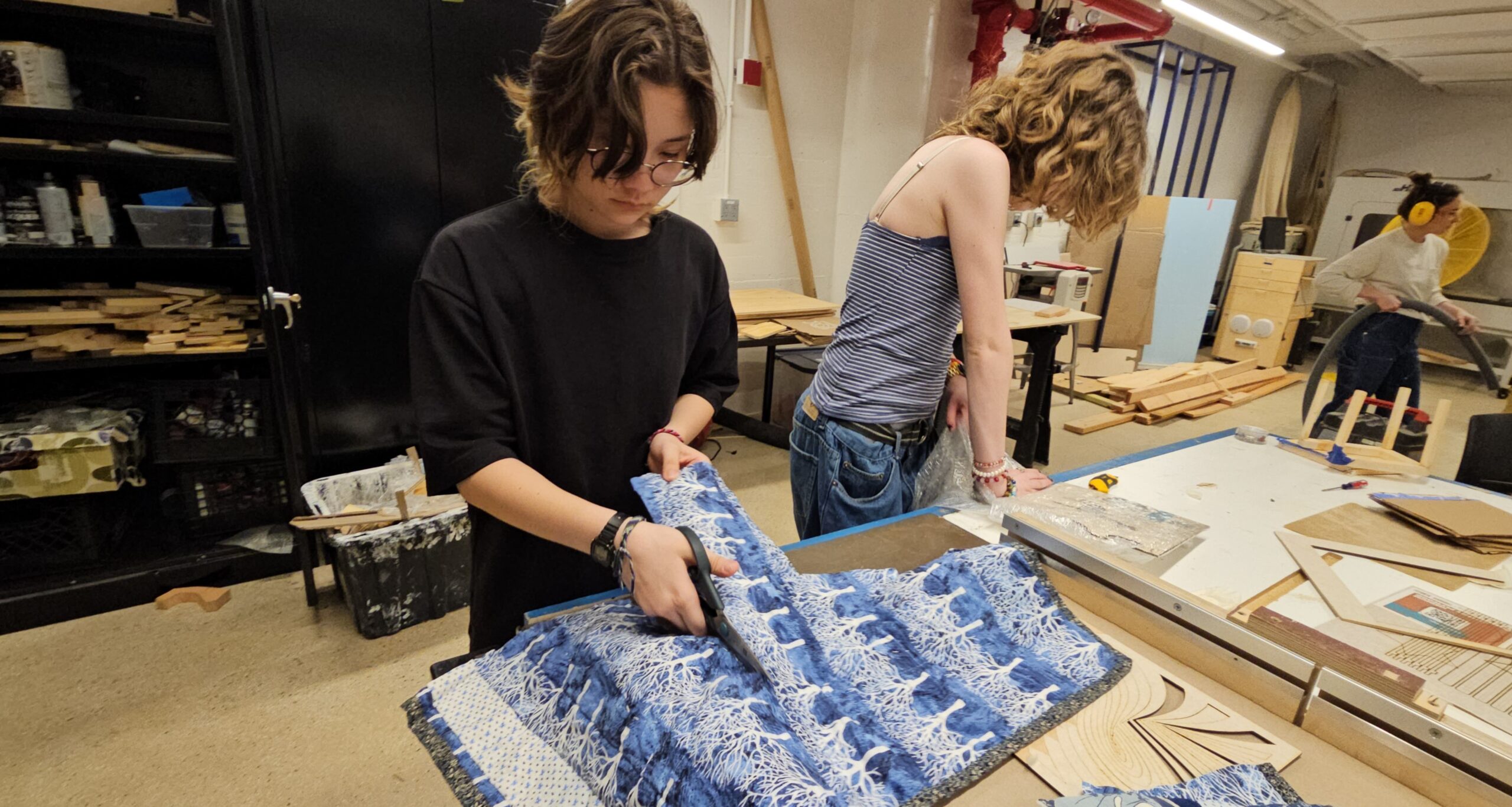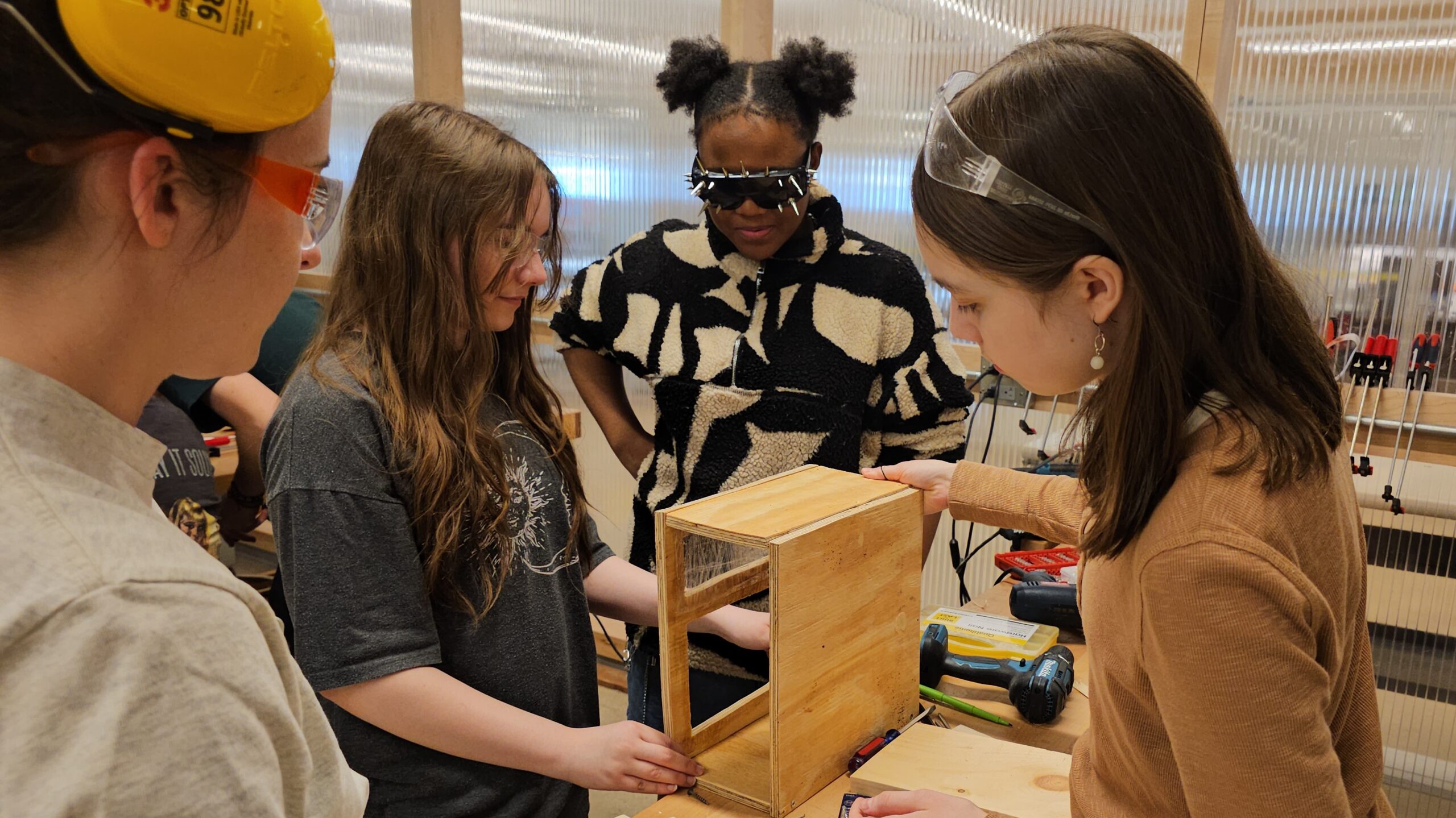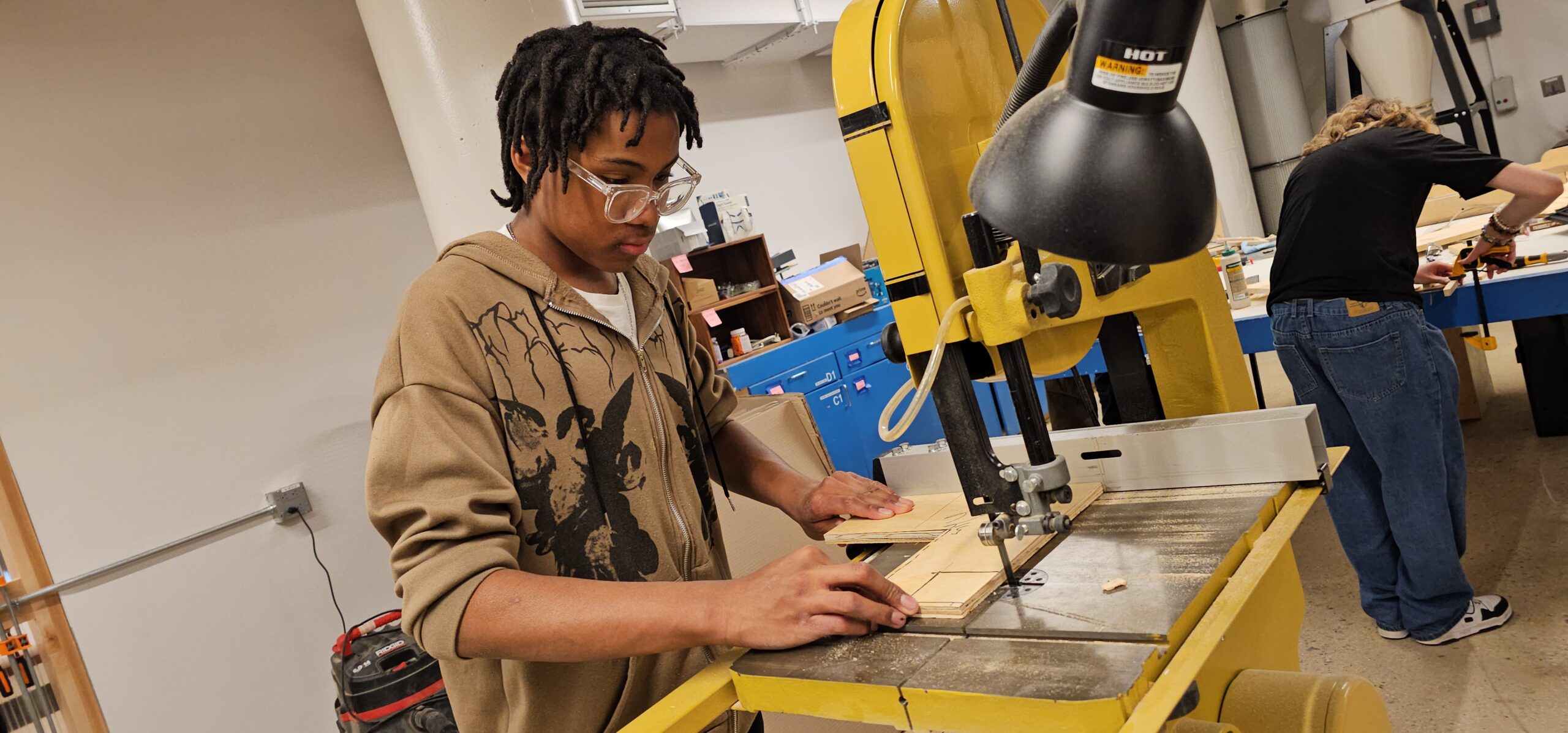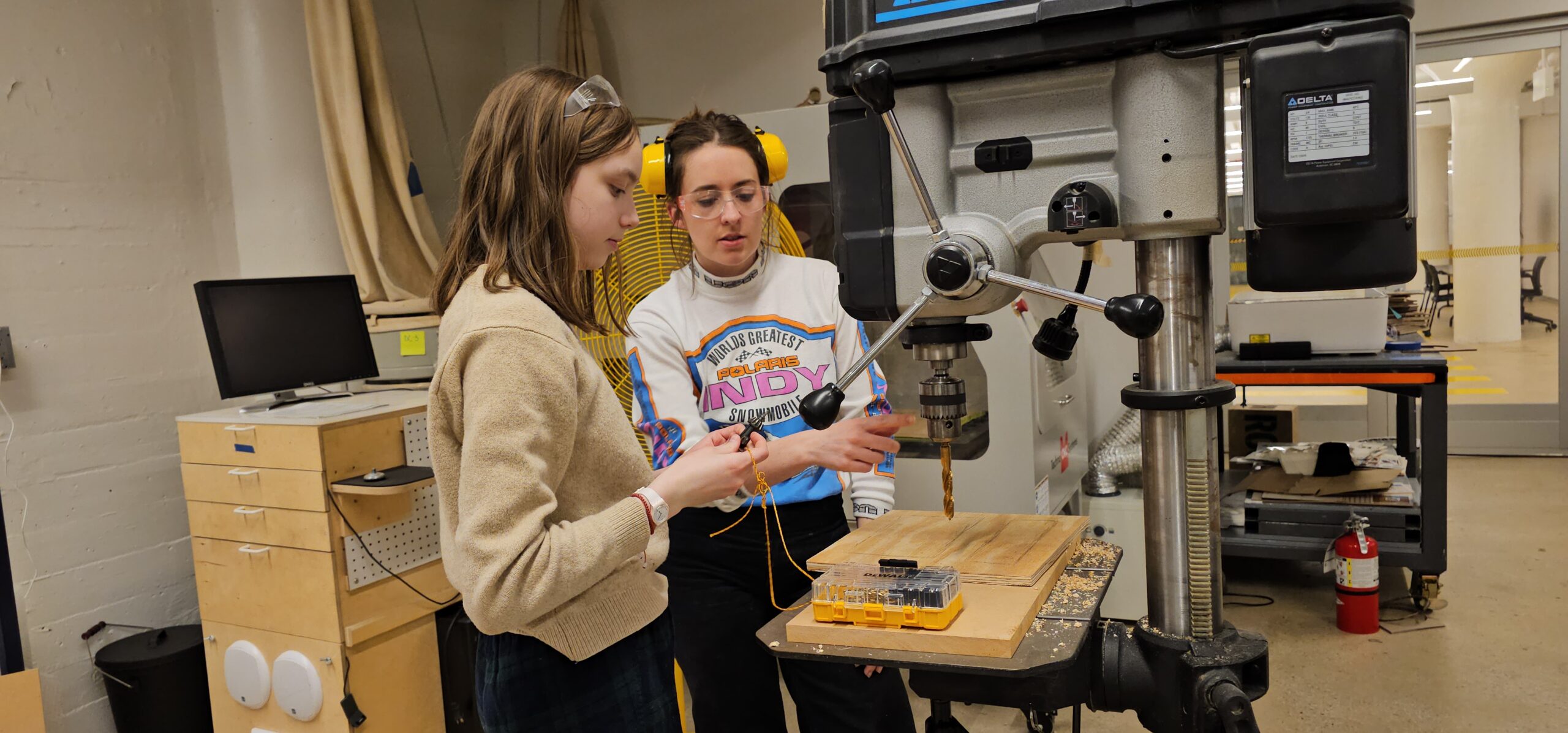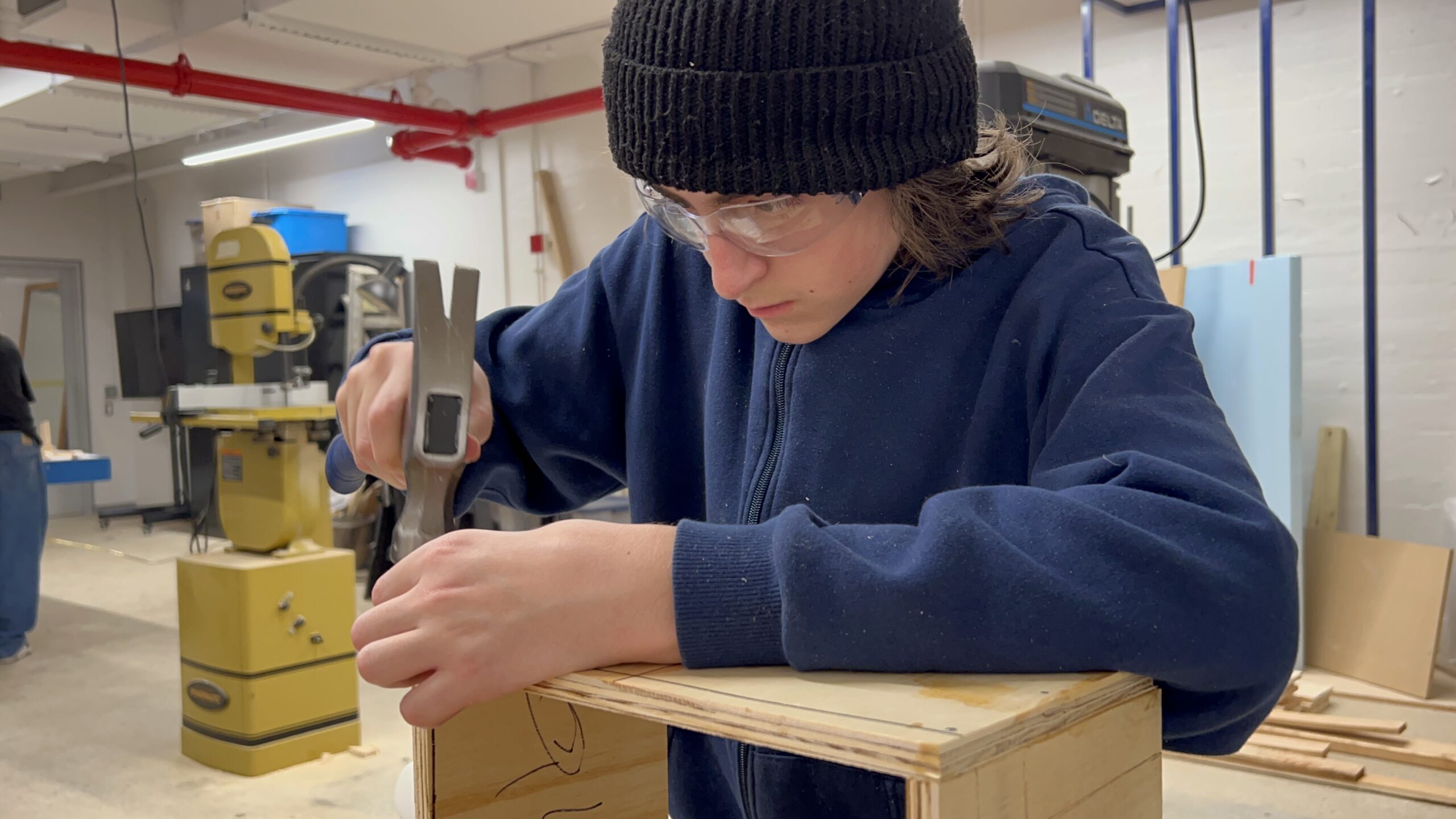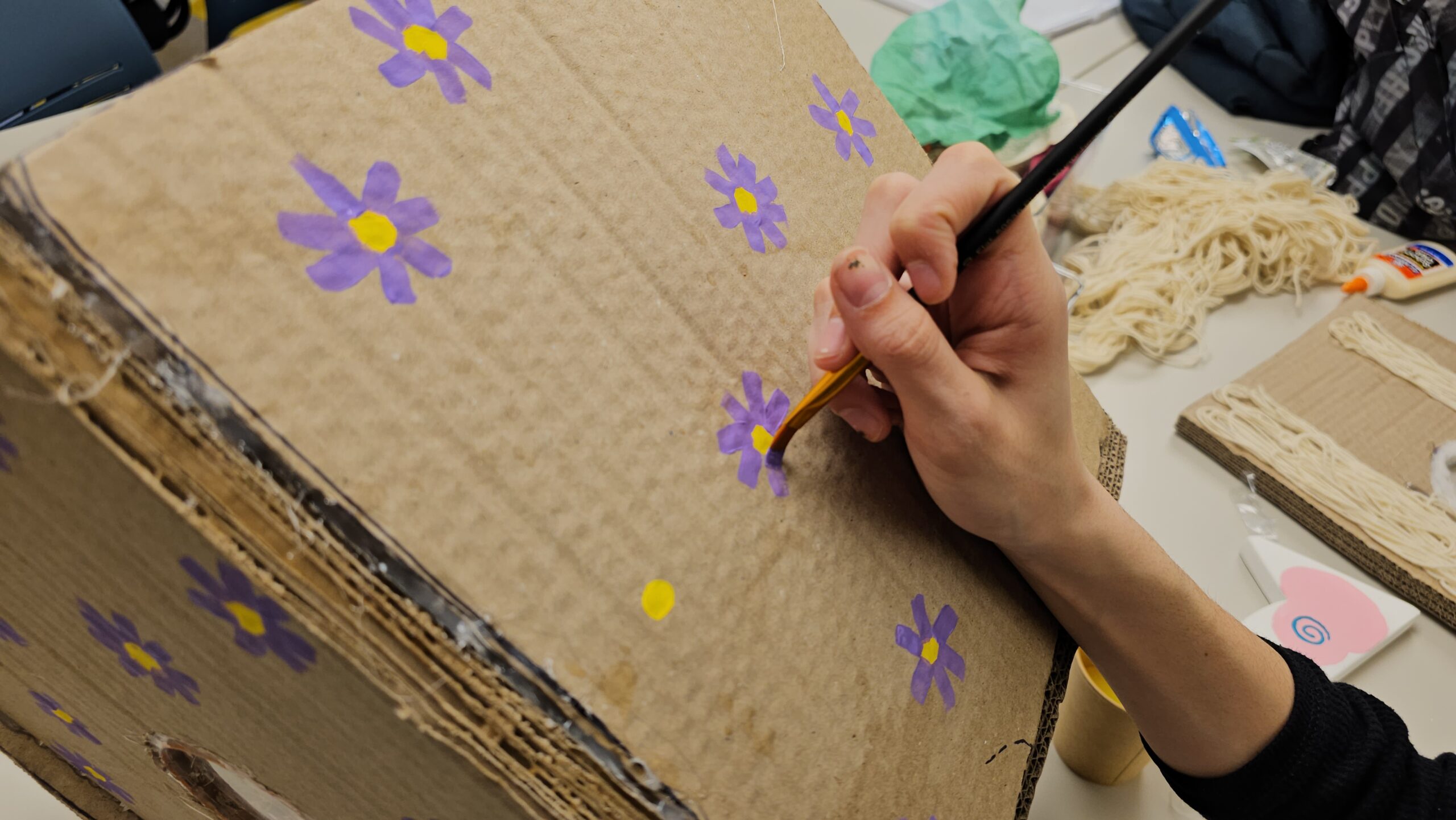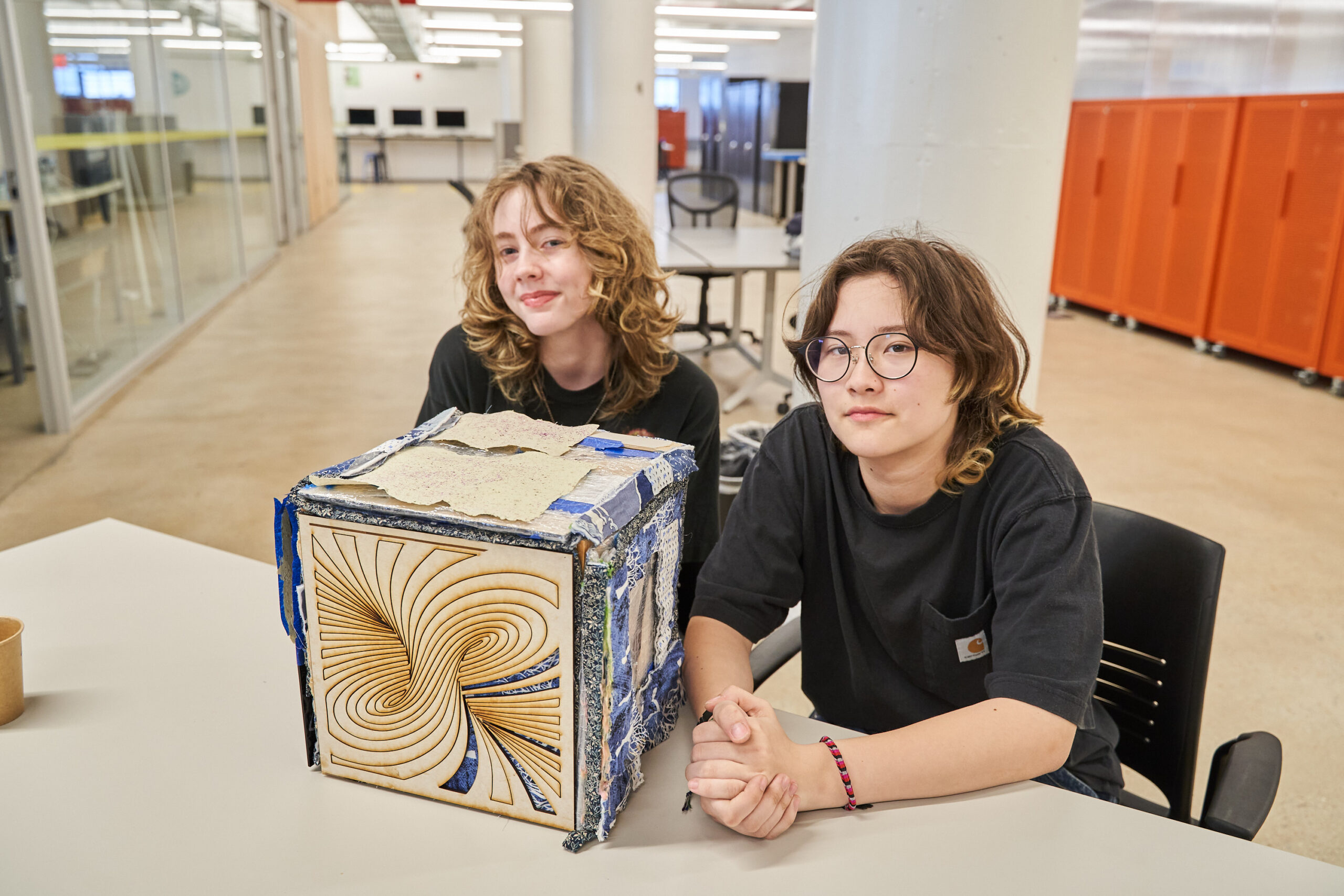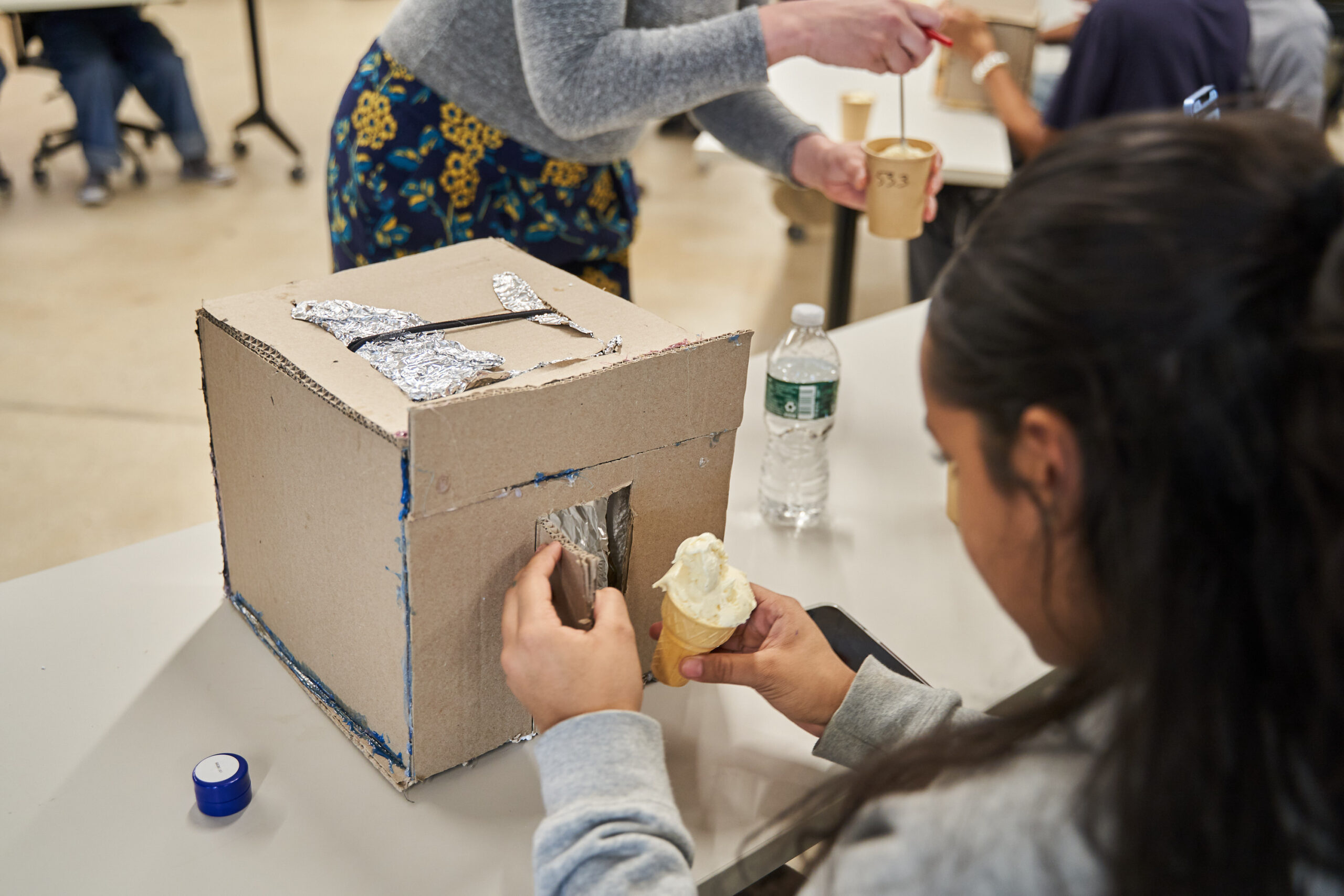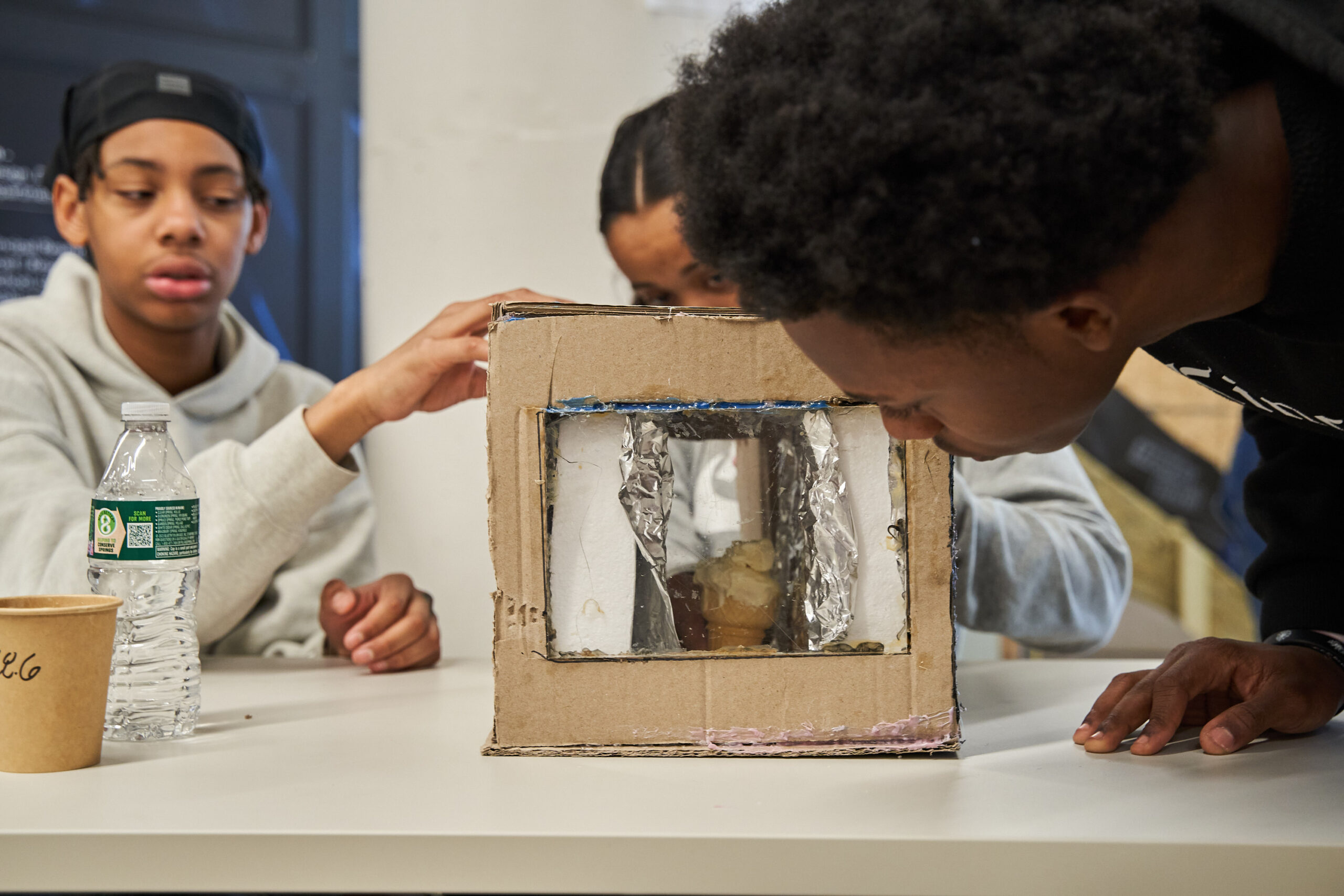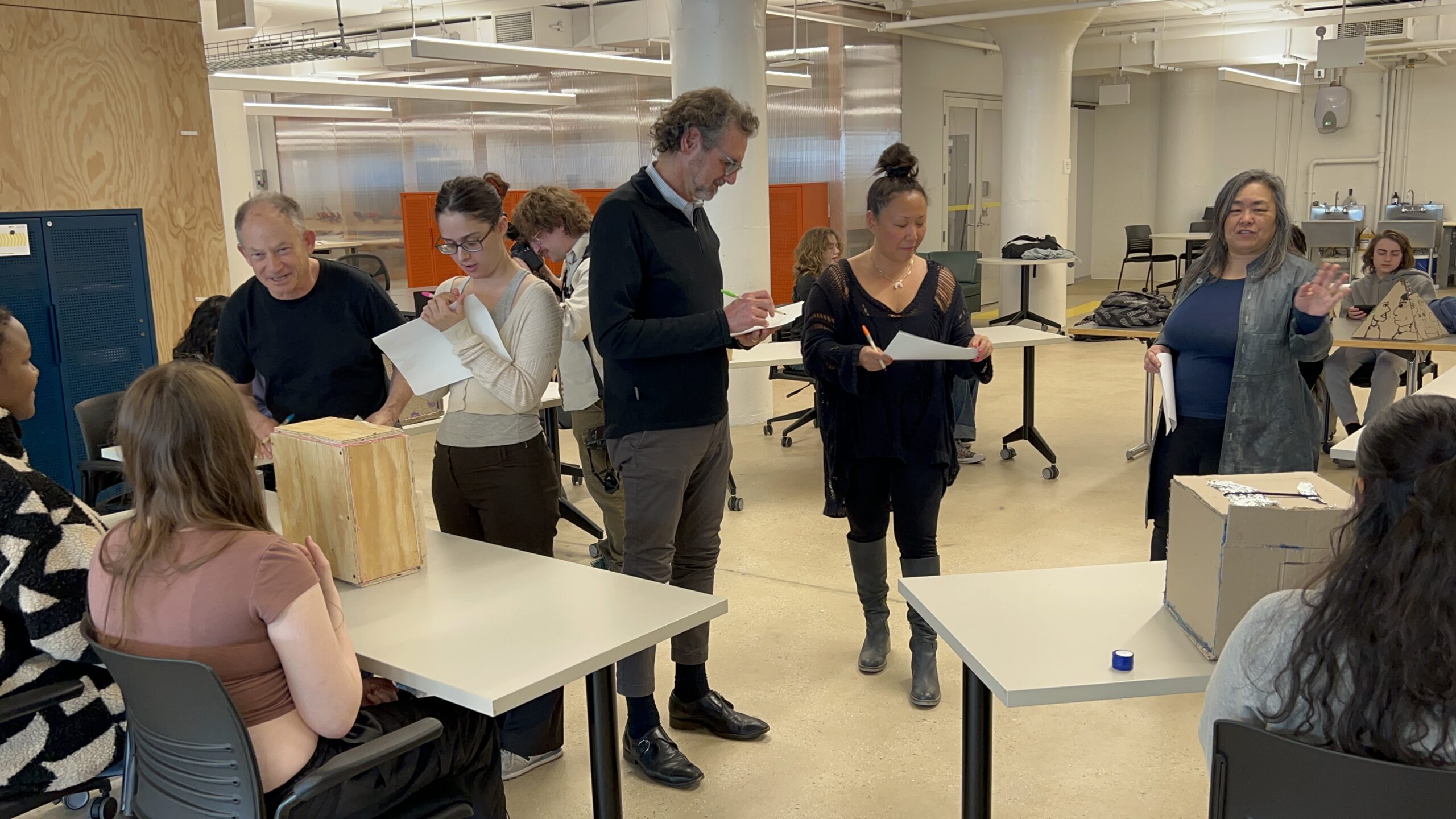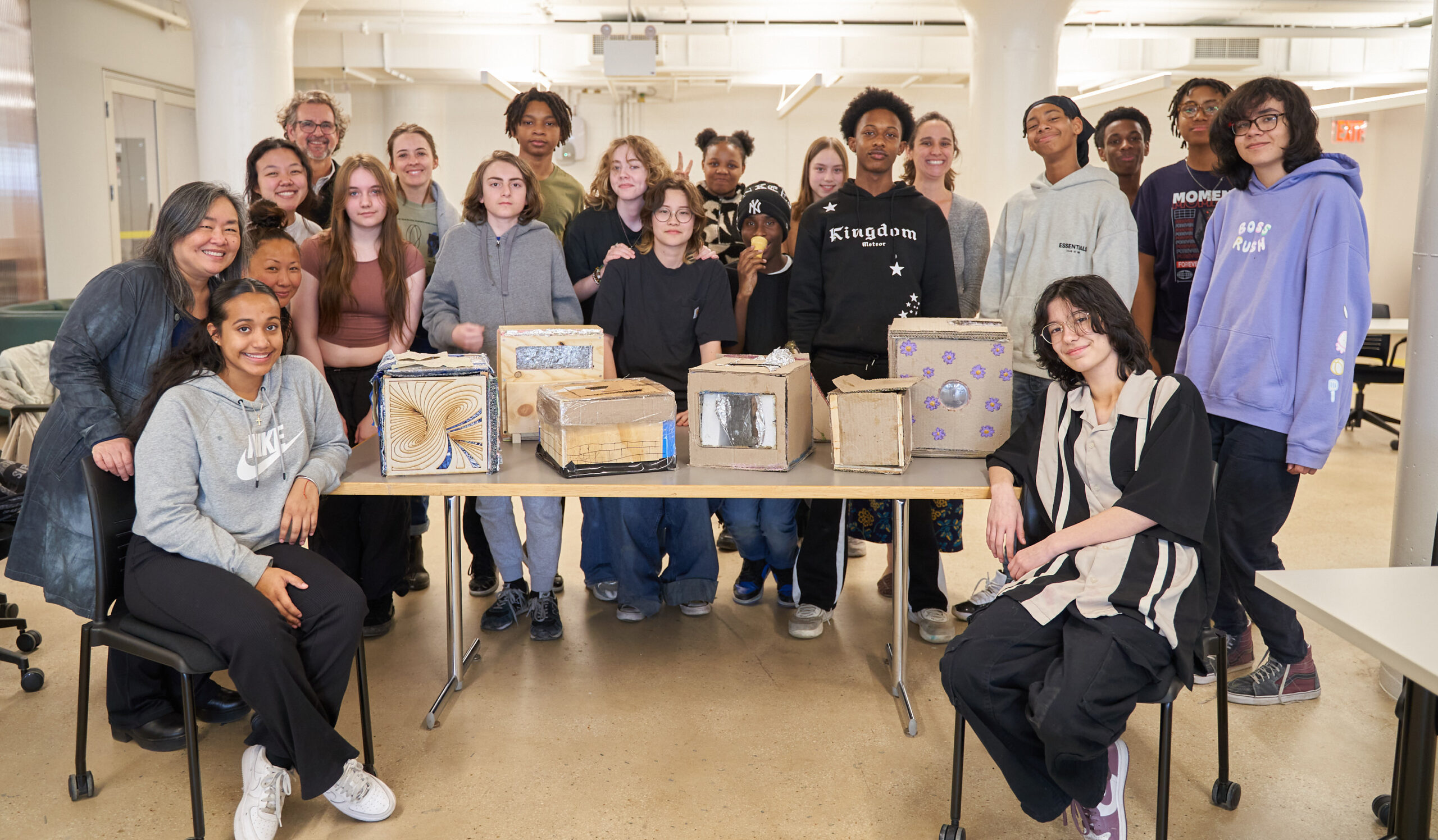Over a period of 12 weeks, ninth graders from Design Works High School in Brooklyn traveled to the Research Yard in the Brooklyn Navy Yard to figure out how to create a box that would stop ice cream from melting without using energy.
They were participating in an afterschool program designed by Pratt’s Center for Art, Design, and Community Engagement K-12 to learn about the design principles for Passive House, a strategy to reduce energy consumption. The program was organized by K-12’s Science and Technology Entry Program (STEP) in collaboration with In Cho, visiting assistant professor of undergraduate architecture. Cho specializes in passive house construction, a set of five building principles developed in the late 20th century by Dr. Wolfgang Feist to improve the air quality, thermal control, and energy efficiency of housing.
“NYC’s built environment generates nearly 70% of the city’s carbon emissions from fossil fuel energy use, impacting our quality of life and the environment,” Cho said. “Learning Passive House principles equips students with vital tools for climate action, provides opportunities for future green careers, and fosters a culture of sustainability. Exploring these concepts through fun and creative activities such as the Ice Cream Box challenge to witness the benefit of higher thermal performance boxes, analogous to high performance buildings, inspires a lifelong commitment to energy efficiency which is foundational to our clean energy future in shaping a world where everyone can thrive.”
Design Works High School, a NYC Department of Education public high school launched in a collaboration between Pratt Institute and Bank Street College of Education, opened its doors for the first time last September. The school received funding from the XQ Institute and NewSchools Venture Fund, and its ongoing funding is from the NYC Public Schools. Design Works combines the power of design-thinking with the importance of social justice, preparing students for college and careers, while empowering them to become changemakers in their communities.
The Ice Cream Box Challenge, a twist on Pratt’s Ice Box Challenge in 2023, allowed the DWHS students to have fun while learning about how sustainability could shape their educational and career trajectories. Under the guidance of Cho and Pratt Center K-12 Director of Programs Megan Aebi Opeña, students formed groups and designed well-insulated wooden boxes made largely from recycled materials. In the process, they navigated a complex design challenge and used miter saws, band saws, drill presses, jigsaws, and other tools.
Over the course of the semester, students put unique touches on their ice cream boxes and experimented with different insulation techniques. They eventually presented their work, via Zoom, to the United Nations-affiliated Enniscorthy Forum, and put their boxes to the test by placing ice cream cones inside and seeing how well they performed as storage containers. The experience gave students first-hand experience in energy-efficient design techniques and emphasized the importance of considering the environmental impact of their actions.
“STEP combined with Passive House for Everyone enables our young scholars to apply design thinking to hands-on projects while addressing major concepts including the climate emergency,” Aebi Opeña said. “By combining these exciting projects with scientific exploration, the program prepares scholars for future challenges they may face.”
Below are photos of students working on their projects, courtesy of Passive House For Everyone.
